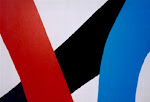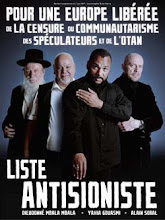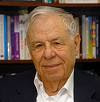About Crisis Group
1. The International Crisis Group is now generally recognised as the world’s leading independent, non-partisan, source of analysis and advice to governments, and intergovernmental bodies like the United Nations, European Union and World Bank, on the prevention and resolution of deadly conflict. Our work has been applauded by, among others, former UN Secretary-General Kofi Annan (‘a global voice of conscience, and a genuine force for peace’); former U.S. President Bill Clinton (‘in the most troubled corners of the world, the eyes, the ears and the conscience of the global community’); successive U.S. Secretaries of State (Condoleezza Rice: ‘a widely respected and influential organisation’, Colin Powell: ‘a mirror for the conscience of the world’ and Madeleine Albright: ‘a full-service conflict prevention organisation’); the President of the European Commission Jose Manuel Barroso (‘a highly influential and inspiring voice in the field of conflict prevention’); Spanish Foreign Minister Miguel Ángel Moratinos (‘an indispensible source of information for governments and a wide range of institutions actively working towards peace and conflict resolution’); and U.S. Special Representative for Afghanistan and Pakistan Richard Holbrooke (‘a brilliant idea ... beautifully implemented’ with reports like CrisisWatch ‘better than anything I saw in government’). Crisis Group has regularly received similar endorsement from influential media, such as Quentin Peel of the Financial Times (‘an essential dose of detailed analysis and hard-nosed realism’) and The Economist (‘invaluable’ reports).
2. Crisis Group was founded in 1995 as an international non-governmental organisation on the initiative of a group of well known transatlantic figures who despaired at the international community’s failure to anticipate and respond effectively to the tragedies in the early 1990s of Somalia, Rwanda and Bosnia. They were led by Morton Abramowitz (former U.S. Ambassador to Turkey and Thailand, then President of the Carnegie Endowment for Peace), Mark Malloch Brown (later head of the UN Development Programme, UN Deputy Secretary-General and UK Minister), and its first Chairman, Senator George Mitchell. The idea was to create a new organisation – unlike any other – with a highly professional staff acting as the world’s eyes and ears for impending conflicts, and with a highly influential board that could mobilise effective action from the world’s policymakers.
3. From small beginnings – a two-person office in London, and a tiny field staff in the Balkans and West Africa – Crisis Group has grown very rapidly over the last decade . It currently employs worldwide some 130 permanent staff, representing between them 46 nationalities and speaking 54 different languages, plus at any given time around 20 consultants and 40 interns. They are located on the ground in nine regional offices and eighteen other disclosed locations covering between them over 60 countries or situations of actual or potential conflict; in four advocacy offices, in Brussels (the global headquarters), Washington DC, New York and London; and as liaison presences in Moscow and Beijing. Crisis Group publishes annually over 80 reports and briefing papers, as well as the CrisisWatch bulletin assessing every month the current state of play in some 70 countries or areas of actual or potential conflict. Publications are distributed widely by email to over 25,000 targeted recipients and over 120,000 website subscribers, and are available free of charge on our website, which has grown enormously in popularity in recent years, with over 2.2 million visits in 2008.
4. What distinguishes Crisis Group from other organisations working on conflict analysis, prevention or resolution is a unique combination of field-based analysis, sharp-edged policy prescription and high-level advocacy, with key roles being played – very unusually for an NGO – by a senior management team highly experienced in government and by a highly active Board of Trustees containing many senior statesmen and women used to making things happen. Crisis Group’s Board is co-chaired by Lord (Christopher) Patten, formerly EU Commissioner for External Relations, Governor of Hong Kong and UK Cabinet Minister; and by Ambassador Thomas Pickering, former U.S. Ambassador to the UN, Russia, India, Israel, Jordan, El Salvador and Nigeria and Under Secretary of State for Political Affairs, and former Senior Vice President for International Relations at Boeing. Crisis Group’s President and CEO has been, since July 2009, Louise Arbour, former UN High Commissioner for Human Rights and Chief Prosecutor for the International Criminal Tribunals for the former Yugoslavia and for Rwanda. She succeeded Gareth Evans, former Foreign Minister of Australia (1988-96) and a member of many international panels and commissions, who served as President between January 2000 and July 2009.
5. Crisis Group’s reports, and the advocacy associated with them, have had a very significant direct impact on conflict prevention and resolution in regions across the world, as policymakers wrestle with how to handle Islamist terrorism, nuclear proliferation, local conflict and the multiple problems associated with failed, failing and fragile states worldwide. We are generally seen as playing a major role in six main ways:
6. Crisis Group’s international headquarters are in Brussels, with major advocacy offices in Washington DC (where it is based as a legal entity) and New York, a smaller one in London, and liaison presences in Moscow and Beijing. The organisation currently has regional offices or local field representation in Abuja, Baku, Bangkok, Beirut, Bishkek, Bogotá, Cairo, Colombo, Dakar, Damascus, Dili, Islamabad, Istanbul, Jakarta, Jerusalem, Kabul, Kathmandu, Kinshasa, Nairobi, Ouagadougou, Port-au-Prince, Pretoria, Pristina, Sarajevo, Seoul, Tbilisi and Tehran, with analysts working in over 60 crisis-affected countries and territories across four continents. These include in Africa, Burundi, Cameroon, the Central African Republic, Chad, Côte d’Ivoire, Democratic Republic of the Congo, Eritrea, Ethiopia, Guinea, Guinea-Bissau, Kenya, Liberia, Nigeria, Rwanda, Sierra Leone, Somalia, South Africa, Sudan, Uganda and Zimbabwe; in Asia, Afghanistan, Bangladesh, China-Taiwan, Indonesia, Kashmir, Kazakhstan, Kyrgyzstan, Myanmar/Burma, Nepal, North Korea, Pakistan, Philippines, Sri Lanka, Tajikistan, Thailand, Timor-Leste, Turkmenistan and Uzbekistan; in Europe, Armenia, Azerbaijan, Bosnia and Herzegovina, Cyprus, Georgia, Kosovo, Macedonia, Russia’s North Caucasus, Serbia, Ukraine and Turkey; in the Middle East and North Africa, Algeria, Egypt, Iran, Iraq, Israel/Palestine, Gulf states, Lebanon, Morocco, Saudi Arabia, Syria and Yemen; and in Latin America and the Caribbean, Bolivia, Colombia, Ecuador, Haiti, Guatemala and Venezuela.
7. Crisis Group’s annual budget is now $15.5 million. It raises funds from governments (some 50 per cent), institutional foundations (27 per cent), and individual and corporate donors (23 per cent), most in the welcome form of core funding (over 70 per cent) rather than being earmarked for specific programs. For a full list of donors please click here. You can also consult our mid-2008 Financial Statements and Auditors’ Report. For a full list of donors please click here. You can also consult our mid-2008 Financial Statements and Auditors' Report.
Thursday, August 13, 2009
The "responsibility to protect"
John Cameron (Blackheath Books) sent this link to the International Crisis Group. Their about page assures us their goal is world peace. Good thing their colonial ancestors went around the world causing economic havoc and creating philosophical con-flicts of Hegelian proportions, or there might not be so many global conflicts that need such upper academic, European "help."
Subscribe to:
Post Comments (Atom)













1 comment:
This, of course, reminds me of the similar views espoused in Etzioni's book, "Security First."
We must share. We must not give in to "selfish" impulses; but one must always give in to the "common good." And you must always be... your brother's keeper... by assuming your communal obligations [and thus, your expected personal, individual responsibilities]... always first... to protect the statist collective... beginning with your very own... "frightened community."
Bottom line: If we don't have that god-like all-seeing eye acting as our holy protector [and our child-like security blanket] - in an immoral civil society-at-large where rogue terrorists have run amok - we risk losing everything else.
What a laughably perfectibilist*, satanic [Luciferian] bit... of sheer, utter nonsense... these ludicrous new "crisis group" dictates... will turn out... 2 bee... 2! ~lol~
http://www.youtube.com/watch?v=GTunsEGm6HU&feature=related
2 Bee or Not 2 Bee
http://www.conspiracyarchive.com/Blog/?p=1329
*The Scientific Dictatorship
Post a Comment